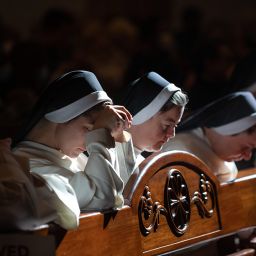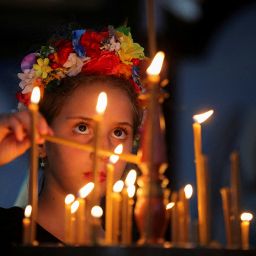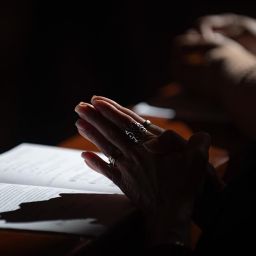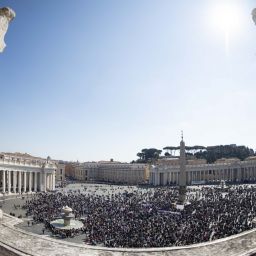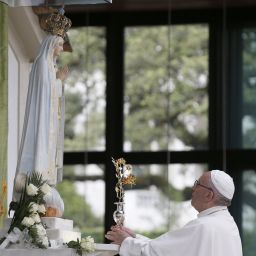
By Father Jacob Dankasa
Special to The Texas Catholic
I got the inspiration to write this article from a third grader at our Holy Family Catholic Academy in Irving. When I was celebrating the usual Mass for the students, we read the Gospel in which Jesus says, “It is written, my house shall be a house of prayer, but you have made it a den of thieves” (Lk19:45-48). As usual, during my homily I interacted with the students and asked them questions. So I asked them, “Christ says my house shall be a house of prayer. What is the house of God that Christ is referring to as ‘my house’?” I got several answers from the kids. Someone said that the house is the temple; another said it’s the Church; another said it’s the cross – all beautiful answers. But one of our third graders raised his hand and said, “The house is our hearts.” I was moved to deep thinking at that point because I wasn’t expecting such an answer – at least, not from a little kid in third grade! That answer wasn’t part of my homily, but I immediately revised my homily to dwell on that point. I placed this third grader’s words in Jesus’ statement, substituting “heart” for “house.” If the house of Jesus is our heart, it means that “our heart is the house of prayer.” That was excellent, I thought! Credit goes to my little third grade student!
If I accept that my heart is the dwelling place of God, it means that the level of cleanliness or purity in my heart keeps God in or out of it. If my heart is a house where God lives, I must be conscious of the attention I need to give to my heart, not necessarily medically, but spiritually and morally. God indeed dwells in our hearts, and He speaks to us all the time, but especially in moments of choice between good and evil, right and wrong, righteousness and sin. Our response to God’s voice in our hearts depends on how much we invest in keeping our hearts clean.
A heart that is kept clean listens and understands the quiet voice of God as He speaks to the heart, either protecting us from impending evil or pushing us toward a greater good. A dirty heart, on the other hand, doesn’t listen; neither does it understand the voice of God speaking to the heart, no matter how loudly God speaks.
As God lives in our hearts, we need to keep them clean so that we can hear his voice. A clean heart avoids places that pollute the mind; a clean heart speaks words that build, not destroy; a clean heart catches the tongue before it gets loose into profanity; a clean heart listens to others and is empathetic to others’ needs; a clean heart doesn’t wish evil for anyone.
Because our hearts enjoy the presence of God, we know God is always with us when we are in need. This knowledge should help us pray with the assurance that God is indeed listening. Even when we feel he is not answering, he is listening because he is in our hearts. If our hearts truly become hearts of prayer, we can’t separate ourselves from prayer. Just as when our heart ceases to beat we’ll cease to exist physically, if our hearts fall away from prayer we’ll cease to exist spiritually. And if our spiritual existence collapses, we’ll never find the internal peace we desire. Every Christian’s heart should be inseparable from prayer. Sometimes, especially when we suffer, we feel that God has left us. But we forget that God shares every moment with us because He is in our hearts. When we suffer or worry, it’s time to keep our prayer going, for God is with us to either take away the suffering or to help us carry it.
I love the fact that it was a third grader, a child probably eight years old, that drew such an important equivalence between our hearts and the place where God lives. God lives everywhere, but He lives especially in our hearts as the most sacred space of the human person. It is in the heart that both good and evil are generated. And it is in the same heart that the struggles between good and evil take place. Of course, it is in the heart that good defeats evil if we keep the heart clean. Our hearts are God’s space, but the evil one struggles to penetrate them. And it’s our decision – we can either cooperate totally with God’s power to weed out evil, or stubbornly ignore God’s voice and allow the Evil One to come in. When the Evil One succeeds in getting a toehold in our hearts and recognizes our lack of strength in the things of God or our emptiness in virtue, he begins to provide us with alternative ways of life and thinking that are in complete opposition to life in God.
As we celebrate this season of Christmas, I invite all of us to cleanse our hearts and make them ready for God to occupy them anew.
Father Jacob Dankasa is the pastor of Holy Family of Nazareth Catholic Church in Irving.


